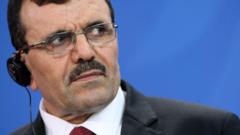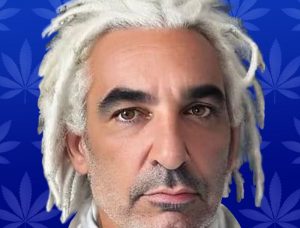The Tunisian court's decision to impose sentences of up to 66 years on opposition leaders and activists reflects a severe authoritarian crackdown by President Kais Saied, provoking concerns among human rights groups and the public regarding the erosion of democratic ideals in the nation.
Tunisia Tightens Grip: Prominent Opposition Figures Sentenced

Tunisia Tightens Grip: Prominent Opposition Figures Sentenced
In a controversial court ruling, nearly 40 prominent opposition figures in Tunisia face extensive prison terms, raising alarm about the country's shifting political landscape.
In a significant escalation of political repression, Tunisia's judicial system has sentenced nearly 40 leading opposition figures to lengthy prison terms, drawing widespread condemnation from human rights advocates. This decision comes amidst deeper concerns about the erosion of the nation’s democratic foundation under President Kais Saied, who has adopted increasingly authoritarian measures since his power consolidation in 2021.
According to the Tunisian official news agency TAP, the court characterized the individuals—comprising opposition leaders, lawyers, and journalists—as guilty of conspiring against state security. The sentences range from 13 to 66 years, a move rights groups criticize as unfounded and indicative of a disturbing trend towards silencing dissent.
Tunisia, heralded as a beacon of democracy after the Arab Spring uprisings, has seen its political environment deteriorate markedly over the past few years. The initial promise of democratic reforms has been overshadowed by economic stagnation and rampant inequalities. Many Tunisians grew increasingly disillusioned with traditional political parties and turned to President Saied for change.
However, nearly four years post his assumption of power, Saied’s administration has primarily been marked by stricter repression rather than meaningful reforms. Journalists and political dissidents report a significant curtailment of media freedom, with the judiciary perceived as a tool for the president to suppress opposition. Citizens are increasingly wary of voicing criticism, fearing potential repercussions from the state.
This stark transformation raises urgent questions about Tunisia's future as it grapples with the dual challenges of a faltering economy and rising authoritarianism, amidst a populace caught between hopes for democratic governance and an alarming crackdown on freedoms.




















